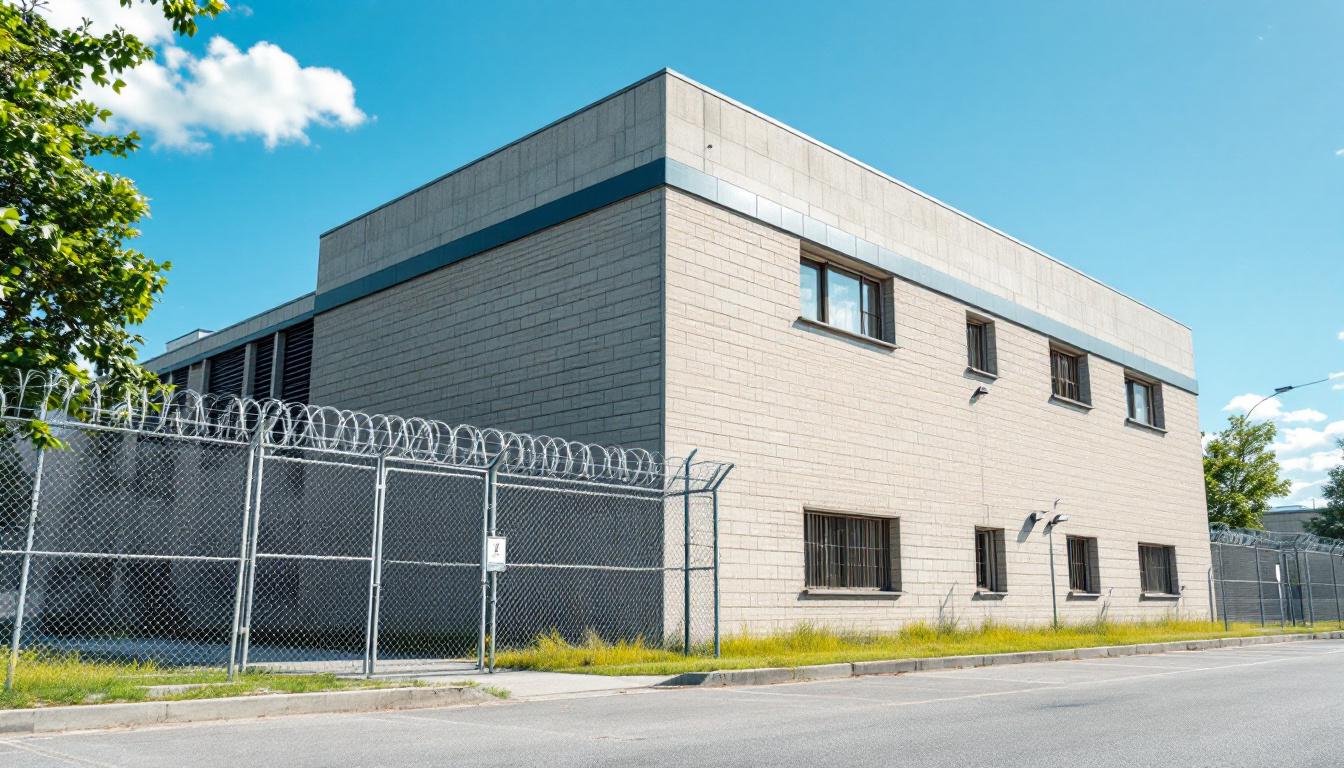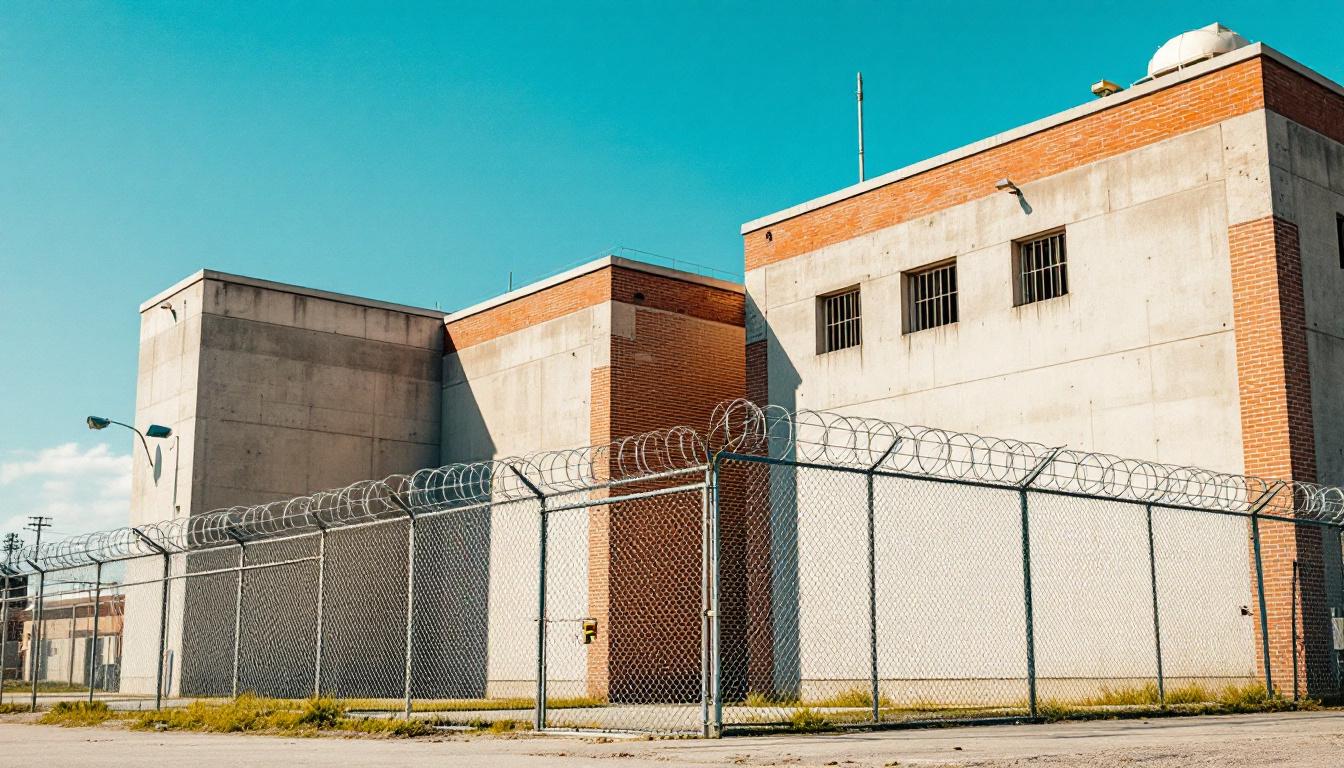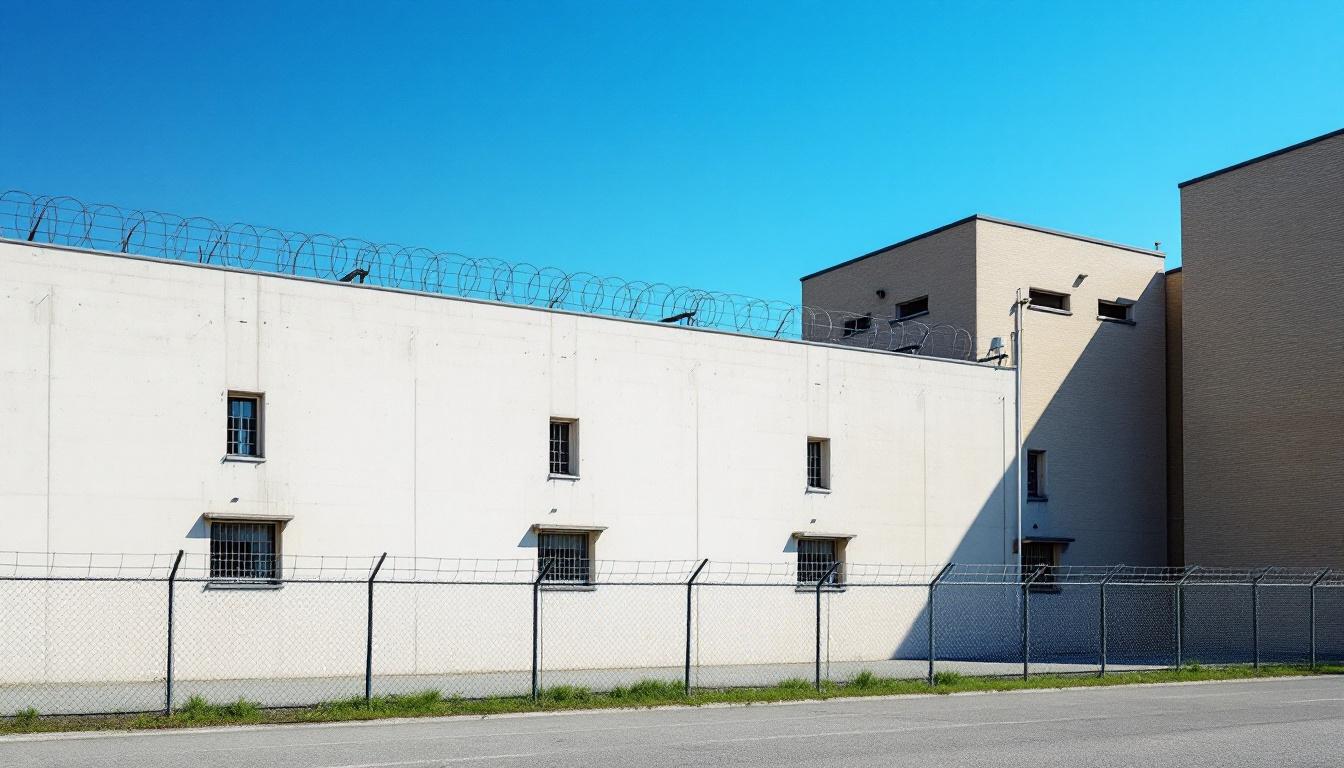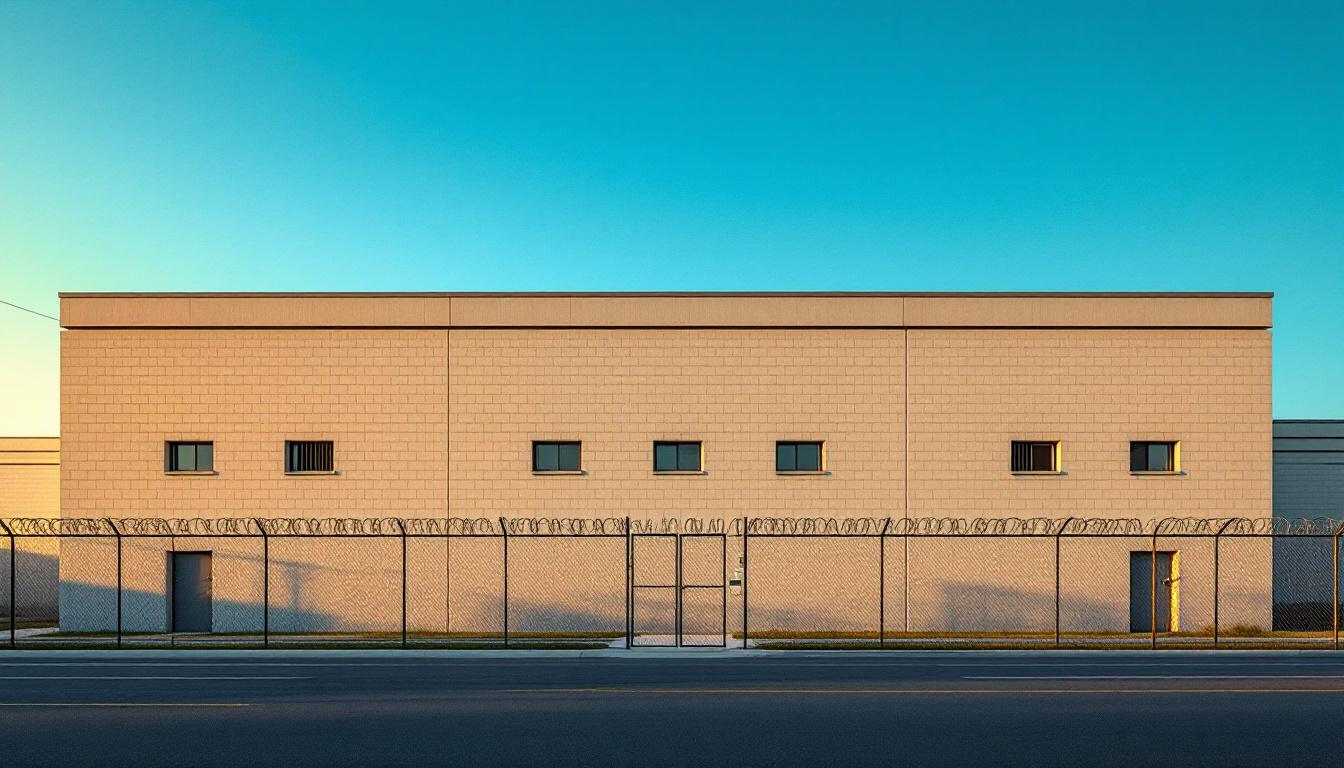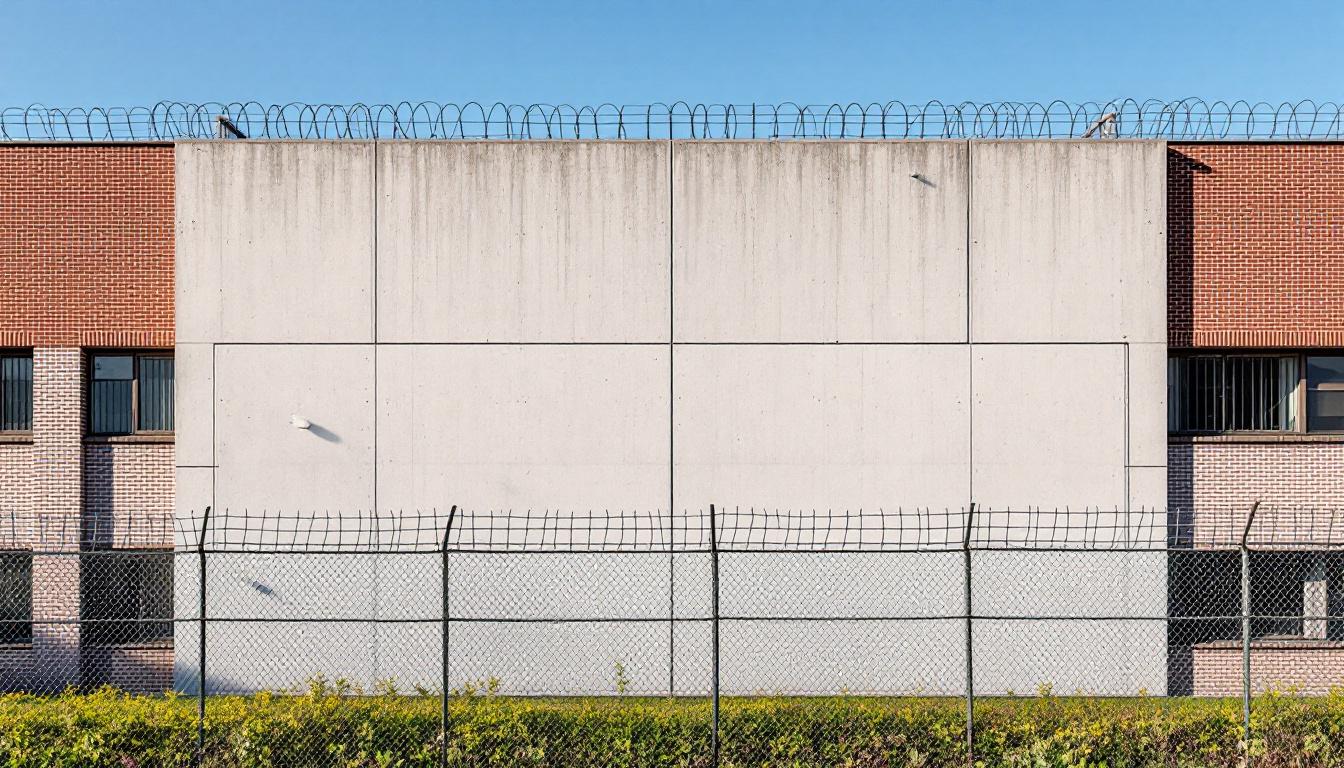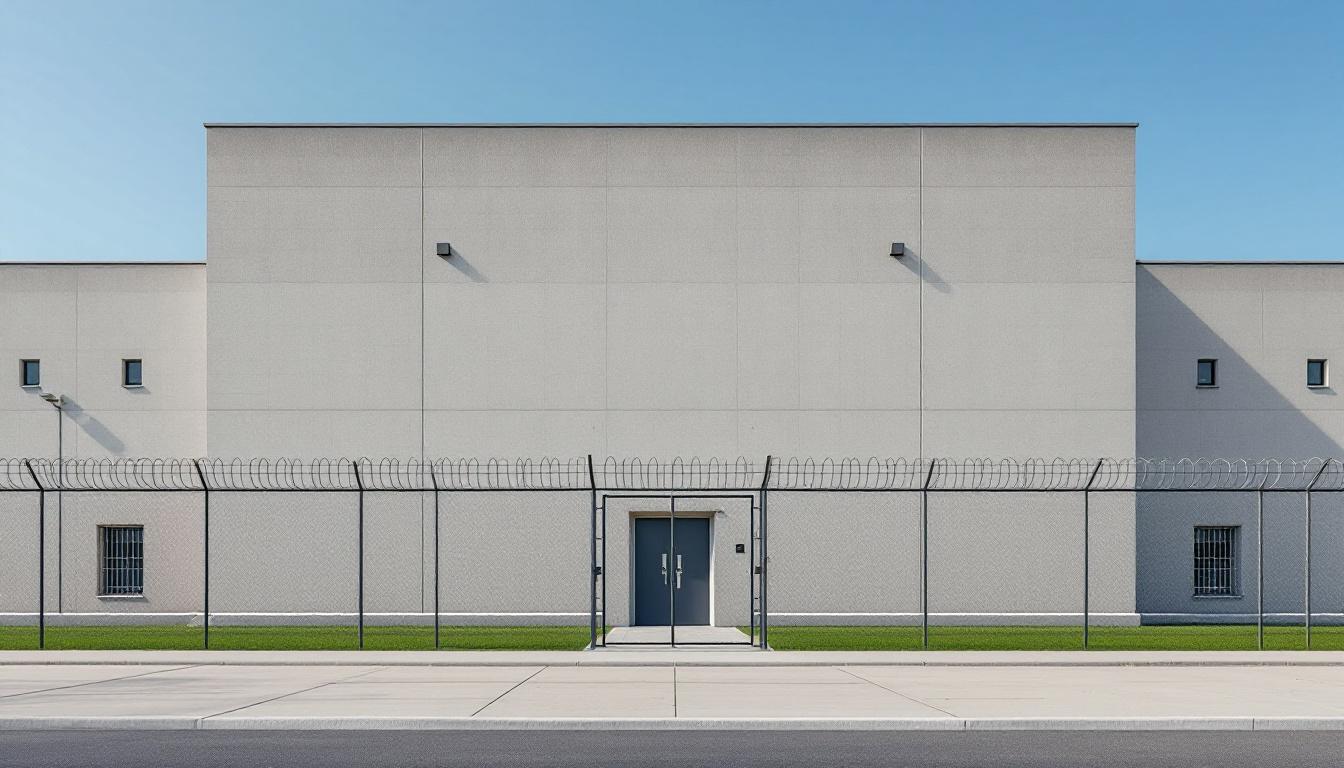
Quick Navigation
How to contact an inmate at State Of Rhode Island Department of Corrections
This comprehensive guide will walk you through how to connect with an inmate at State Of Rhode Island Department of Corrections. Follow the steps below to find an inmate and send letters and photos:
- Search for the inmate using our search tool below
- Create your account or log in to Penmate
- Write your message (up to 6,000 characters)
- Send instantly - inmates receive printed copies daily
Find an Inmate
Search for an inmate to start communicating today
Tip: You can search by first name, last name, or inmate ID number
To contact a person at State Of Rhode Island Department of Corrections start by searching for the person on the official facility website. Perform a search by following these steps:
- Step 1: Enter their first name and last name into the search form and click "Search"
- Step 2: Locate their inmate record
- Step 3: Write down their Inmate ID and any housing information provided
Important! Be sure to enter the person's full name. Nicknames should not be used.
How to Send Messages to Inmates

You can use your phone or computer to send emails, letters, and photos to an inmate. Messages are sent electronically to inmate tablets or kiosks at the facility. If you would like to send a message, start by searching for an inmate at State Of Rhode Island Department of Corrections.
Sending Photos and Postcards

A great way to send love and support to a loved one at State Of Rhode Island Department of Corrections is to send photos and postcards. It only takes a few minutes to send photos from your phone and it makes a huge difference. You can also mail postcards with words of support and inspiration, or design your own postcard for special moments like birthdays and holidays.
Important! Be sure not to send any explicit photos or they may not be approved by the facility. You can also use a photo printing app like Penmate to make sure your photos are printed at the correct size (4x6 or 3x5) and are mailed according to the rules and regulations of State Of Rhode Island Department of Corrections.
Frequently asked questions about State Of Rhode Island Department of Corrections
-
How long does it take to deliver a message?
If you're sending an email message your letter is usually delivered within 24-48 hours. For messages sent via mail you should expect delivery within 3-7 days. All messages will need be approved by State Of Rhode Island Department of Corrections.
-
How much does it cost to send a message to State Of Rhode Island Department of Corrections?
You can send a message free using your phone or mail a message via USPS for the price of a $0.60 stamp and envelope. You can also purchase credits or e-stamps from services starting at $1.99.
-
What services can I use to contact an inmate at State Of Rhode Island Department of Corrections?
Penmate
You can use Penmate to send letters and photos to an inmate from your phone. It's an easy way to stay in touch during your loved one's incarceration. Use the inmate locator to find an inmate's location and contact information, then you can send messages within a few minutes.
Securus messaging
Securus may be another option for communicating with an inmate at State Of Rhode Island Department of Corrections. You can create a friends and family account and purchase credits to send messages. All messages will be reviewed and must be approved by the facility.
JPay
Some county jails and state prisons may support sending messages with JPay. You must register an account with the system, find your loved one, and purchase stamps to send messages. For some locations you can also attach photos.
Smart Jail Mail
You may also check if Smart Jail Mail is available at State Of Rhode Island Department of Corrections. Smart Jail Mail is operated by Smart Communications and has contracted with some state and county jails. After purchasing credits, your messages and photos are sent to the facility, printed out, and then handed out to your loved one.
-
What is the mailing address of State Of Rhode Island Department of Corrections?
Mailing address:
State Of Rhode Island Department of Corrections
40 Howard Ave
Cranston, RI 02920
Phone: (401) 462-1000Business hours:
- Monday: Open 24 hours
- Tuesday: Open 24 hours
- Wednesday: Open 24 hours
- Thursday: Open 24 hours
- Friday: Open 24 hours
- Saturday: Open 24 hours
- Sunday: Open 24 hours
-
What are the visiting hours at State Of Rhode Island Department of Corrections?
Visiting hours at State Of Rhode Island Department of Corrections vary by housing unit and security level. Generally, visits are scheduled on weekends and holidays, with some facilities offering weekday visits. Contact the facility directly at (401) 462-1000 or check their website for the current visiting schedule. Visits typically last 30-60 minutes and must be scheduled in advance.
-
What items are prohibited when sending mail to State Of Rhode Island Department of Corrections?
Prohibited items typically include: cash, personal checks, stamps, stickers, glitter, glue, tape, staples, paperclips, polaroid photos, musical or blank greeting cards, hardcover books, magazines with staples, and any items containing metal or electronics. Only send letters on plain white paper with blue or black ink. Photos must be printed on regular photo paper (no Polaroids). Always check with State Of Rhode Island Department of Corrections for their specific mail policies.
-
How do I send money to an inmate at State Of Rhode Island Department of Corrections?
You can send money to an inmate at State Of Rhode Island Department of Corrections through several methods: 1) Online using JPay, Access Corrections, or the facility's approved vendor, 2) Money orders mailed directly to the facility with the inmate's name and ID number, 3) Kiosks located in the facility lobby, or 4) Over the phone using a credit or debit card. Fees vary by method, typically ranging from $2.95 to $11.95 per transaction.
-
Can I schedule a video visit with an inmate at State Of Rhode Island Department of Corrections?
Many facilities now offer video visitation as an alternative to in-person visits. At State Of Rhode Island Department of Corrections, video visits may be available through services like Penmate, Securus Video Connect, GTL, or ICSolutions. Video visits typically cost $10-20 for 20-30 minutes and must be scheduled in advance. You'll need a computer or smartphone with a camera and reliable internet connection. Contact the facility for their specific video visitation policies and approved vendors.
-
What identification do I need to visit an inmate at State Of Rhode Island Department of Corrections?
All visitors must present valid government-issued photo identification such as a driver's license, state ID, passport, or military ID. Minors must be accompanied by a parent or legal guardian who can provide the minor's birth certificate. Some facilities require visitors to be on the inmate's approved visitation list, which may require a background check. Contact State Of Rhode Island Department of Corrections for specific ID requirements and visitor approval procedures.
-
How can I find out an inmate's release date?
To find an inmate's release date at State Of Rhode Island Department of Corrections, you can: 1) Use the online inmate search tool if available, 2) Call the facility's records department, 3) Contact the inmate's case manager or counselor, or 4) Have the inmate provide this information during a call or visit. For privacy reasons, some facilities only release this information to immediate family members.
Facility Overview
Contact Information
State Of Rhode Island Department of Corrections40 Howard Ave
Cranston, RI 02920
Phone: (401) 462-1000
Official Website

About State Of Rhode Island Department of Corrections
Comprehensive rehabilitation programming and community reintegration services form the cornerstone of what Rhode Island DOC offers to individuals within its Cranston facility, where evidence-based approaches to offender management and support create pathways toward successful outcomes. This RI correctional facility typically provides educational opportunities, vocational training, substance abuse treatment, and mental health services designed to address the underlying factors that may contribute to criminal behavior. The facility’s approach generally emphasizes skill development and personal growth, recognizing that meaningful change often requires comprehensive support systems that extend beyond traditional security measures.
Located in Cranston, Rhode Island DOC serves as a significant component within the state’s correctional system, housing individuals at various stages of their sentences while maintaining focus on preparing them for eventual community reentry. The facility may offer programming that includes job readiness training, literacy education, and counseling services, all structured around the understanding that successful rehabilitation requires addressing both immediate needs and long-term goals. Staff typically work to create an environment where individuals can develop the tools and mindset necessary for positive community integration.
The correctional facility operates within Rhode Island’s broader commitment to reducing recidivism through targeted interventions and support services. Programs generally focus on helping individuals develop coping strategies, job skills, and social connections that support law-abiding behavior upon release. Through partnerships with community organizations and service providers, the facility often facilitates connections that may continue beyond an individual’s period of incarceration, creating networks of support that extend into the broader Cranston and Rhode Island communities.
Programs & Services
From basic literacy to advanced vocational certification, the Rhode Island Department of Corrections typically provides a comprehensive array of opportunities designed to address the diverse needs of individuals in custody. This multifaceted approach recognizes that successful reintegration often requires addressing educational gaps, developing marketable skills, and tackling underlying personal challenges. The breadth of available opportunities reflects an understanding that meaningful change happens when individuals can access resources tailored to their specific circumstances and goals.
Educational opportunities often form the foundation of personal development within the facility system. High school diploma programs may provide individuals with the chance to complete their secondary education through structured coursework and individualized support. Education programs typically extend beyond basic academics to include literacy development and continuing education options. Vocational training opportunities also play a crucial role, often offering hands-on instruction in trades and technical skills that can translate directly into employment upon release.
Therapeutic and support services complement educational offerings by addressing personal challenges and building life skills. Substance abuse treatment programs may provide both group and individual counseling to help individuals overcome addiction issues. Veteran services typically offer specialized support for those who have served in the military, addressing comprehensive needs and connecting individuals with relevant resources. Also available are conflict resolution opportunities that teach communication and problem-solving skills, while arts and crafts programs may provide creative outlets that support emotional well-being and personal expression.
Daily Life & Visitation

The sound of morning announcements typically marks the beginning of each day for individuals housed within Rhode Island’s correctional facilities. Today’s routine generally follows a structured schedule that remains consistent throughout the week, with individuals participating in count procedures, meal times, and various programming activities. Work assignments often begin in the early morning hours, with individuals contributing to facility operations through kitchen duties, maintenance tasks, and administrative support roles.
Living accommodations vary depending on security classification and housing unit assignment. Individuals typically reside in cells or dormitory-style housing, with personal property allowances that may include approved clothing, hygiene items, and limited personal effects. Also, the commissary system allows individuals to purchase additional food items, toiletries, and writing materials using funds from their institutional accounts. Meals are generally served in designated dining areas at scheduled times, though some housing units may receive meals directly to their living areas.
Structured programming schedules offer educational opportunities, vocational training, and recreational activities throughout the week. However, participation often depends on security level, behavior record, and available space in programs. Visitation policies typically allow approved family members and friends to visit during designated hours, while telephone access and written correspondence provide additional means of maintaining outside connections. Also, individuals may participate in religious services, library programs, and various support groups that offer structure and personal development opportunities during their incarceration.
Ready to Connect?
Start communicating with your loved one today
Search for an Inmate
